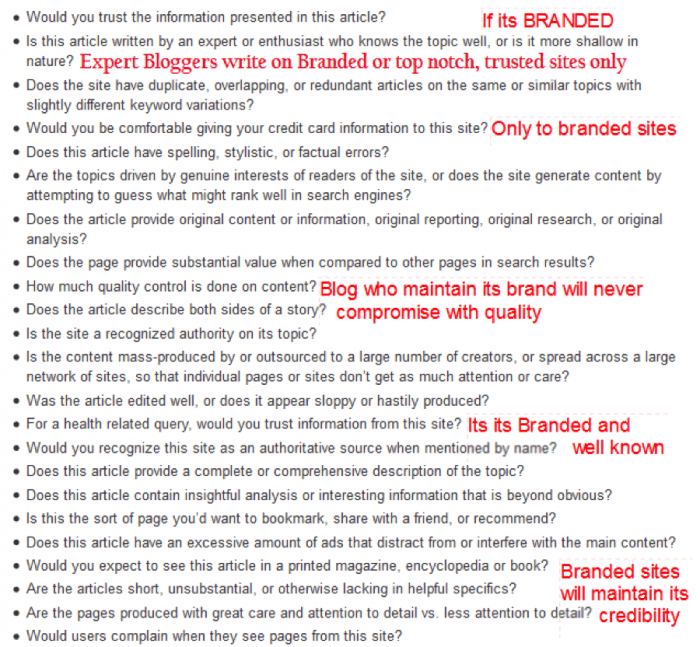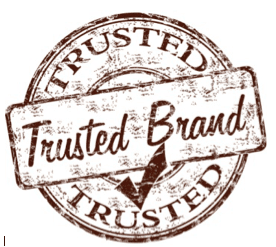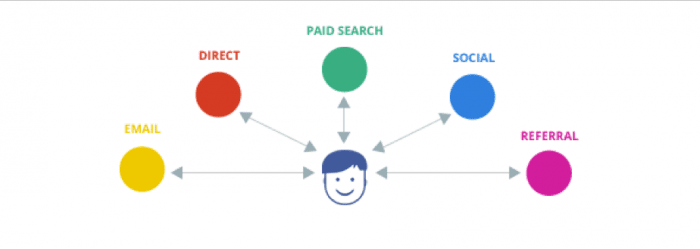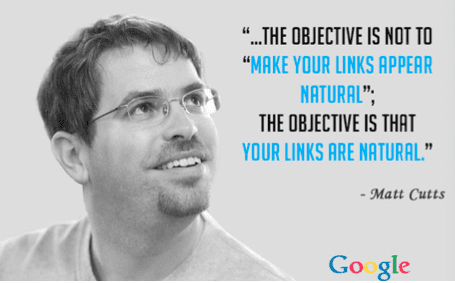Does branding really matter when it comes to your SEO ranking?
How does brand affect your SEO ranking? This is a question that’s often pondered upon by webmasters. Most fail to make a connection between the two at all. Any webmaster who knows how Google algorithms and indexing work recognizes that there’s no way to measure the popularity of a brand. Yet, there’s constant talk of brand and its relationship to SEO ranking.
Before I start explaining about brand and its relation, let's go through Amit Singhal’s post on building high-quality sites. He mentioned a list of questions that should we keep in mind before creating quality websites. In the below image, most of the questions can be answered in just two points:
1. Brand
2. Expert author

Going through these questions will help you determine whether the site is branded. For instance, if the information is written by a doctor with 30 years of experience, then you would trust it. If the person is an expert, then he or she knows how to share valuable information. Experts won’t let anyone harm their credibility, which they've gained over many years. Now, let's look at brand and its relation to SEO ranking.
Brand Increases TRUST and Makes People Click

First, it's important you understand that Google algorithms are designed to push webmasters towards creating user-centric content as opposed to SEO-centric content. One thing that people readily recognize is a brand. Think of a scenario where you’re searching for information related to a particular disease. The SERP throws up several links before you. Let’s say the top entry pertains to the disease, but you have never seen the name of the website before. The second result belongs to WebMD and the third one belongs to Mayo Clinic. You’ll surely be inclined to click on the second or third result. The reason is simple; you trust these brands and their information. That's brand recall.
How Does Trust Increase SEO Ranking?

Google recognizes user behavior and gives authoritative websites a boost. If people continuously ignore the unbranded first link, eventually it will increase the SEO ranking of a brand that's frequently clicked. It’s as simple as that. Even though Google crawlers don’t directly recognize brands, the user behavior guides Google to rank the brands higher. Therefore, gaining users' trust makes a huge difference. Branding plays a major role here.
Brand Opens Gates of Traffic from Various Channels

This is pretty straightforward. Let’s assume that your brand has managed to build trust with readers. They're more likely to follow your social media pages and share your content on their own profiles. In turn, this will ultimately lead more traffic to your website. The quality backlinks that are so important today will come to you naturally in the process. People will start considering your brand an authority on the subject.
Moreover, unbranded searches rely on generic search data or keywords. That’s the only way they can attract traffic. For gaining traffic through the avenues mentioned above, you need a brand name. Unbranded searches miss out on brand recall hugely. For example, someone looking for hotel reviews would probably go to TripAdvisor without giving a second thought. Instead of searching for “best hotels in Punta Gorda, Florida,” the user will likely search “TripAdvisor hotels in Punta Gorda, Florida.” Or, he'll simply go to TripAdvisor directly.
Brand and Ranking Signals
Backlinks are among the most vital ranking signals. Branding can get you more backlinks. In fact, it actually causes a ripple effect earning you several backlinks. We already know that Google values backlinks you've earned naturally as opposed to those you're getting through manipulative practices. Now, let’s assume that you post some great content. If a high authority website that controls a huge amount of traffic over the Internet backlinks to you, that’s a jackpot right there correct? Well, not if you don’t have good brand recognition. Why should anyone trust your content information?
A single backlink likely won't do you a whole lot of good. Yet, when people see that your website is being continually linked to from high authority websites, they might be inclined to consider you for their own backlinks. Many will stop short of linking to you due to lack of familiarity though, unless you're a recognizable brand. There’s an obvious lack of trust here. So, what could have been a great opportunity is lost simply because you don’t have good brand recognition. The trust of online traffic goes hand in hand with SEO ranking.
Brand is the Future of Link Building
Bill Slawski has exposed a Google patent, also known as the Panda Patent. He mentions a few interesting tidbits that seem to point towards making branding even more relevant in the future. Here’s my interpretation of the main ideas made in the patent.

Google will look at the specific search queries that are leading users to a particular website. This will be used by Google to measure the brand’s popularity. It's also designed to look at the quality and relevance of the resource. Another major aspect to note is that Google records queries clubbed with the mention of a brand name and stores it. The search engine uses this information to generate similar results when, in the future, comparable queries are made without the mention of the brand. What this means is Google will start giving high importance to these authoritative brands for queries related to them in the near future. Also, it mentions “implied links,” which is the future link building practice of co-occurrence.
Brand Boosting - Biggest Factors
It's clear today that mere backlinks are not enough to improve SEO ranking. Link popularity is a vital part of how Google ranks websites. Techniques like directory submissions, blog commenting, bookmarking, and article submissions are outdated. The two terms co-citation and co-occurrence have become synonymous with high-quality backlinks in the current SEO scene. The best approach for link building is to build a solid brand along with co-citation and co-occurrence.
Branding, Co-Citation, and Co-Occurrence
The first step towards creating your brand is to consistently provide readers with relevant and informative content that's original. When your website gives out epic content and brings value to readers, they're more likely to cite you with other quality resources. This paves the way for co-citation. When your content stays relevant and on track, it's bound to have words, phrases, and synonyms that go well with the title. Google will recognise this fact and improve your SEO ranking.
Market your content while highlighting your brand. Branding will increase your chances of being “recognised” as an authority source by other websites, thus bringing you natural backlinks. Keep in mind that authoritative citations bring credibility to content you put out. Never shy away from pointing towards quality sources.
Final Words on Branding for SEO Ranking
If you follow the best SEO practices, you're sure to reach the helm of SERPs. However, to stay there, you'll need brand recognition. Maintaining your spot on top of Google's search results is only possible when people recognise your website, backlink to it, and scout specifically for your brand name. When you think SEO ranking, just remember than brand affects your SEO, and always keep that at the forefront of your mind.
 Thanks to Shane Barker for sharing their advice and opinions in this post. Shane Barker is a digital marketing consultant, named the #1 social media consultant in the nation by PROskore Power Rankings. He has expertise in business development, online marketing and is an SEO specialist who has consulted with Fortune 500 companies, government agencies, and a number of A-list celebrities. You can follow him on Twitter or connect on LinkedIn.
Thanks to Shane Barker for sharing their advice and opinions in this post. Shane Barker is a digital marketing consultant, named the #1 social media consultant in the nation by PROskore Power Rankings. He has expertise in business development, online marketing and is an SEO specialist who has consulted with Fortune 500 companies, government agencies, and a number of A-list celebrities. You can follow him on Twitter or connect on LinkedIn.








 Thanks to
Thanks to 


